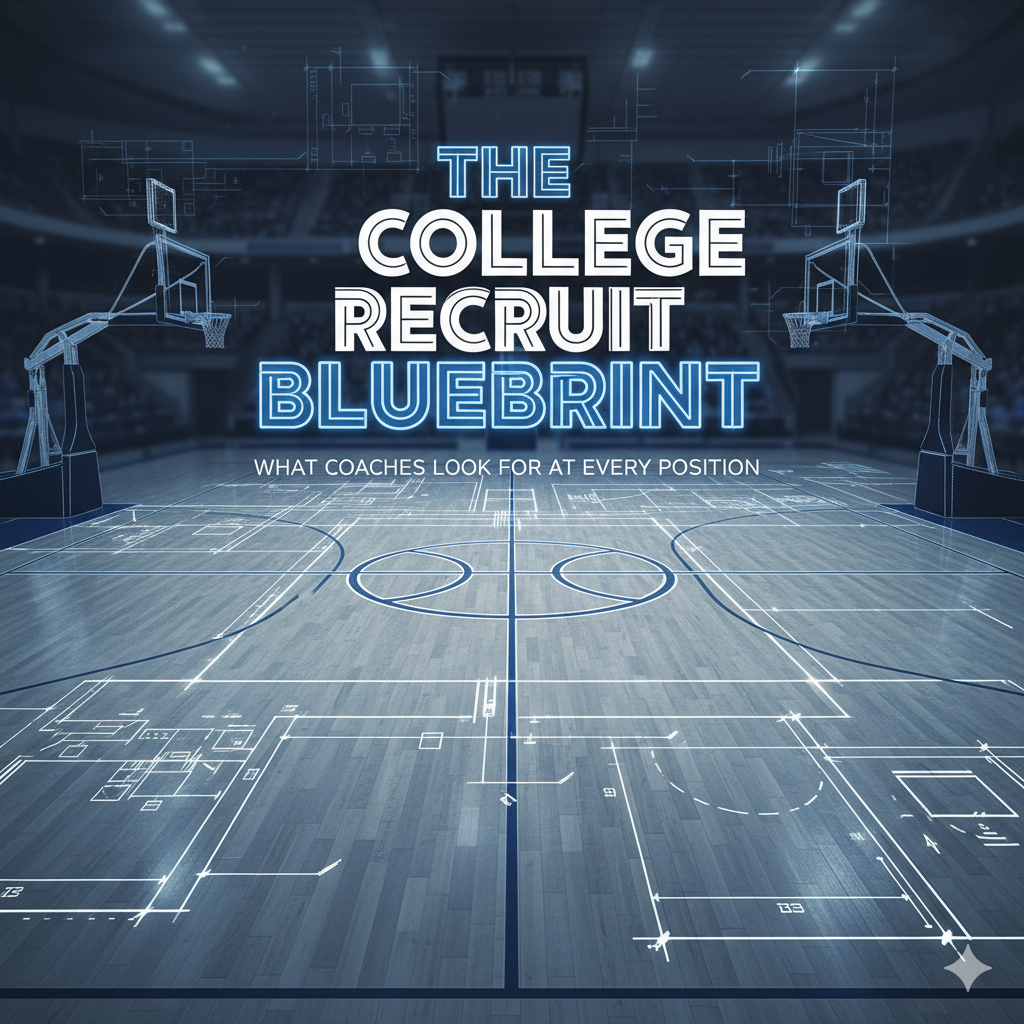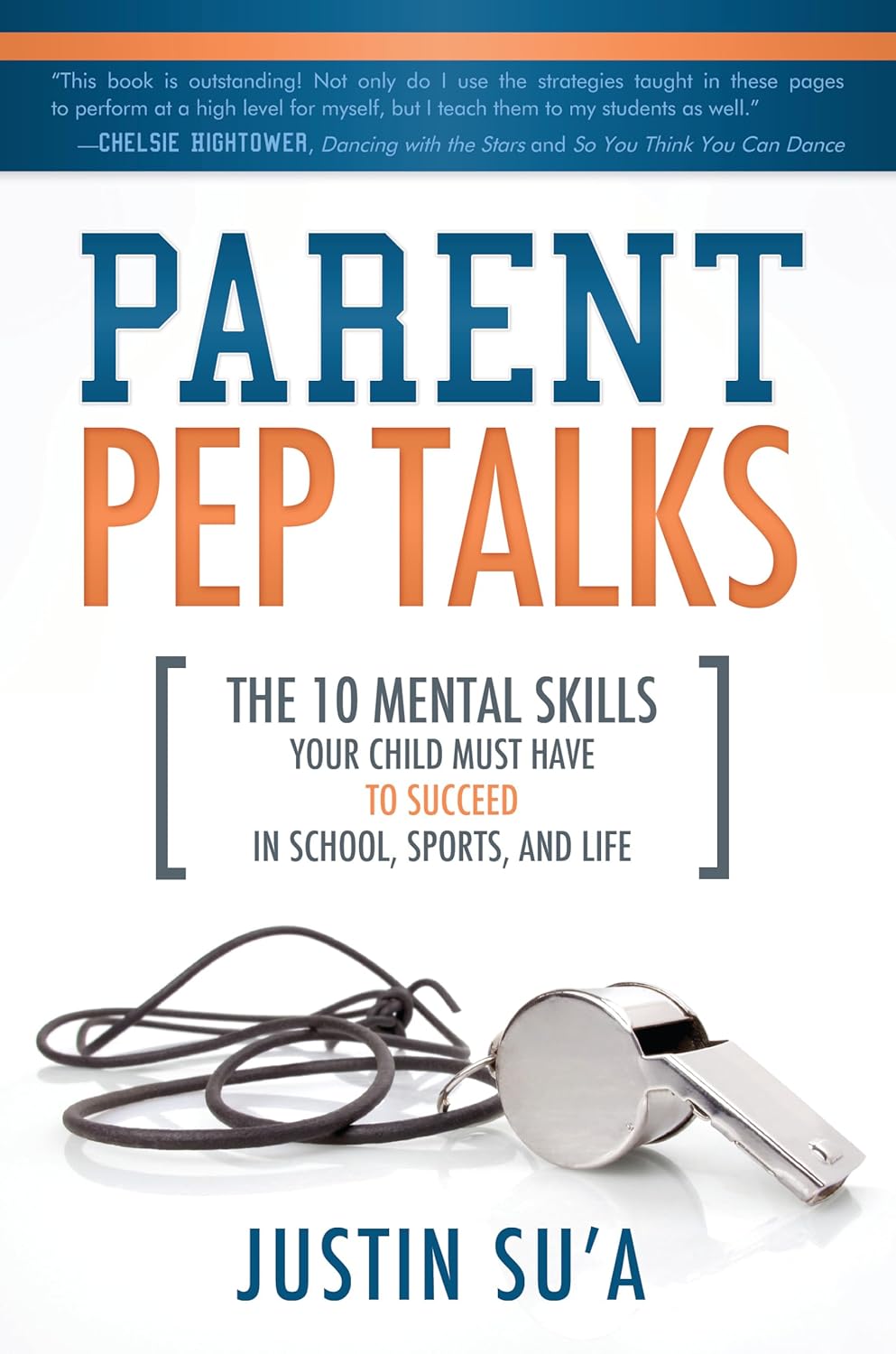Series Introduction
If you’re serious about playing college basketball, you need to understand what separates a high school player from a college recruit at your specific position. We’ve created this five-part series to break down exactly what college coaches are looking for at each spot on the floor.
This isn’t about generic advice that applies to everyone. This is position-specific intelligence that tells you exactly what coaches are evaluating when they watch you play. Each position has different responsibilities, different physical requirements, and different skills that matter most. If you want to get recruited, you need to know what coaches expect from YOUR position.
What This Series Covers
Each position breakdown follows the same five-category framework that college coaches use when evaluating recruits:
1. Physical Requirements – The speed, strength, and athleticism needed to compete at the college level
2. Technical Skills (Offense) – What you need to do with the ball to be effective
3. Technical Skills (Defense) – Your defensive responsibilities and expectations
4. Basketball IQ – The mental side of the game that separates good players from great ones
5. Intangibles – The leadership, work ethic, and competitive fire that coaches can’t teach
We’ll also give you NBA player comparisons for each position so you can study how the pros operate and model your game after theirs.
Here’s the real talk
Coaches aren’t just watching you score points. They’re studying how you move, how you think, how you communicate, and whether you make your teammates better. They’re looking at your work ethic, your coachability, and whether you’ve got that competitive fire that can’t be taught.
Use this series as your blueprint. Be honest with yourself about where you’re at right now, then identify the gaps between your current game and what coaches expect. That’s where your work begins. Focus on developing the complete package at your position – not just the flashy stuff, but the little things that separate college-level players from everyone else.
Part 1: Point Guard – The Floor General
The floor general who controls everything – you’re the coach on the court making everyone around you better while getting yours when it’s time.
As a point guard, you’re the extension of your coach on the floor. College coaches need someone who can run the offense, make everyone better, and take over when the game is on the line. You need elite ball-handling, court vision that sees three passes ahead, and the ability to score when defenses sag off. But here’s what separates college-level point guards from everyone else: leadership and basketball IQ. You’re running the show, calling out defenses, and making split-second decisions under pressure.
Key expectations: Handle different with both hands, stroke pure from three (33%+), never miss from the line (75%+), assist-to-turnover ratio crazy, put the clamps on their best guard
NBA Comps to study: Chris Paul, Steph Curry, Luka Doncic, Damian Lillard, Ja Morant, Tyrese Haliburton
[Read the full Point Guard breakdown →]
Part 2: Shooting Guard – The Bucket
The bucket – your job is simple: get buckets, guard their best wing, and never let the defense breathe.
College coaches recruit shooting guards to do one thing better than anyone else: score. You need to be automatic from three (35%+), create your own shot when the offense stalls, and knock down clutch free throws. But scoring isn’t enough at the college level. Modern shooting guards need to be 3-and-D specialists who can lock up on defense and make life miserable for opposing wings. You’re chasing shooters through screens, contesting every shot, and crashing the glass.
Key expectations: Automatic from three, pull up from anywhere, wet off the dribble and catch, lock up their best wing scorer, stay attached to shooters through screens
NBA Comps to study: Devin Booker, Donovan Mitchell, Anthony Edwards, Klay Thompson, Mikal Bridges, Zach LaVine
[Read the full Shooting Guard breakdown →]
Part 3: Small Forward – The Swiss Army Knife
The swiss army knife – you do everything and guard everybody, the most complete player on the floor.
This is the most versatile position in basketball, and college coaches need someone who can literally do it all. You’re scoring from all three levels, guarding positions 1 through 4, grabbing boards, and making plays. Small forwards are the ultimate glue guys who sacrifice personal stats for team wins. You might not lead in any one category, but you impact every aspect of the game. College coaches love small forwards who can switch on defense, hit the three, and make the right play every single time.
Key expectations: Score from all three levels, knock down threes (35%+), guard the other team’s best player, crash both ends, be everywhere on defense
NBA Comps to study: LeBron James, Kevin Durant, Kawhi Leonard, Jayson Tatum, Jimmy Butler, Scottie Barnes
[Read the full Small Forward breakdown →]
Part 4: Power Forward – The Enforcer
The enforcer who can stretch the floor – you bang in the paint, protect the rim, and make them pay from deep.
Modern power forwards need to do two things that seem contradictory: dominate physically in the paint AND stretch the floor with three-point shooting. College coaches want someone who brings toughness and energy, sets the physical tone, and does the dirty work. But you also need to knock down threes (33%+) to space the floor and be a threat in pick-and-pop situations. You’re boxing out bigger centers, switching onto guards, and being the connector on both ends of the floor.
Key expectations: Dominate the paint, wet from three to space the floor, own the glass on both ends, protect the rim, embrace contact and physicality
NBA Comps to study: Giannis Antetokounmpo, Anthony Davis, Paolo Banchero, Jaren Jackson Jr., Draymond Green
[Read the full Power Forward breakdown →]
Part 5: Center – The Anchor
The anchor – you protect the paint, dominate the boards, and set the foundation for everything your team does.
You’re the last line of defense, the rim protector, and the foundation of everything your team does. College coaches need a center who can own the paint, dominate the glass, and alter every shot at the rim. Modern centers also need to be skilled – reliable free throw shooters (70%+), able to make plays from the high post, and ideally developing range out to three. But your primary job is simple: protect the rim, rebound, and set the tone with your physicality. You’re the loudest voice on defense, directing traffic and erasing mistakes.
Key expectations: Protect the rim at all costs, dominate the glass on both ends, finish everything at the rim, set solid screens, anchor the defense and communicate everything
NBA Comps to study: Nikola Jokic, Joel Embiid, Victor Wembanyama, Rudy Gobert, Bam Adebayo, Chet Holmgren
[Read the full Center breakdown →]
What’s Next
Over the next five posts, we’re breaking down each position in complete detail. You’ll get the exact blueprint for what college coaches are looking for at your position – the physical tools, technical skills, basketball IQ, and intangibles that separate high school players from college recruits.
Don’t just read about your position. Study ALL five positions to understand how the game fits together and what your teammates need from you. The best players understand the entire game, not just their own role.
Remember: getting to the college level isn’t just about talent – it’s about consistency, effort, and proving every single day that you belong. The blueprint is in your hands. Now go put in the work.
Read the full series:





